Systems Change,
Not Climate Change


Yes, we must urgently cut carbon emissions to slow climate change, but …
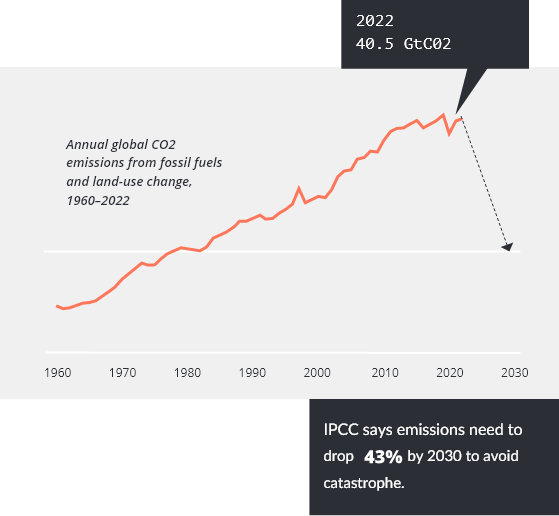
WE CAN CHANGE
THE SYSTEM
Move away from extractive economic structures that cause carbon emissions, environmental destruction, and loss of biodiversity.
Fix problems at their source, not just downstream damage.
… emissions are just one symptom of an economic system that prioritises the wrong things.
— rising GDP.
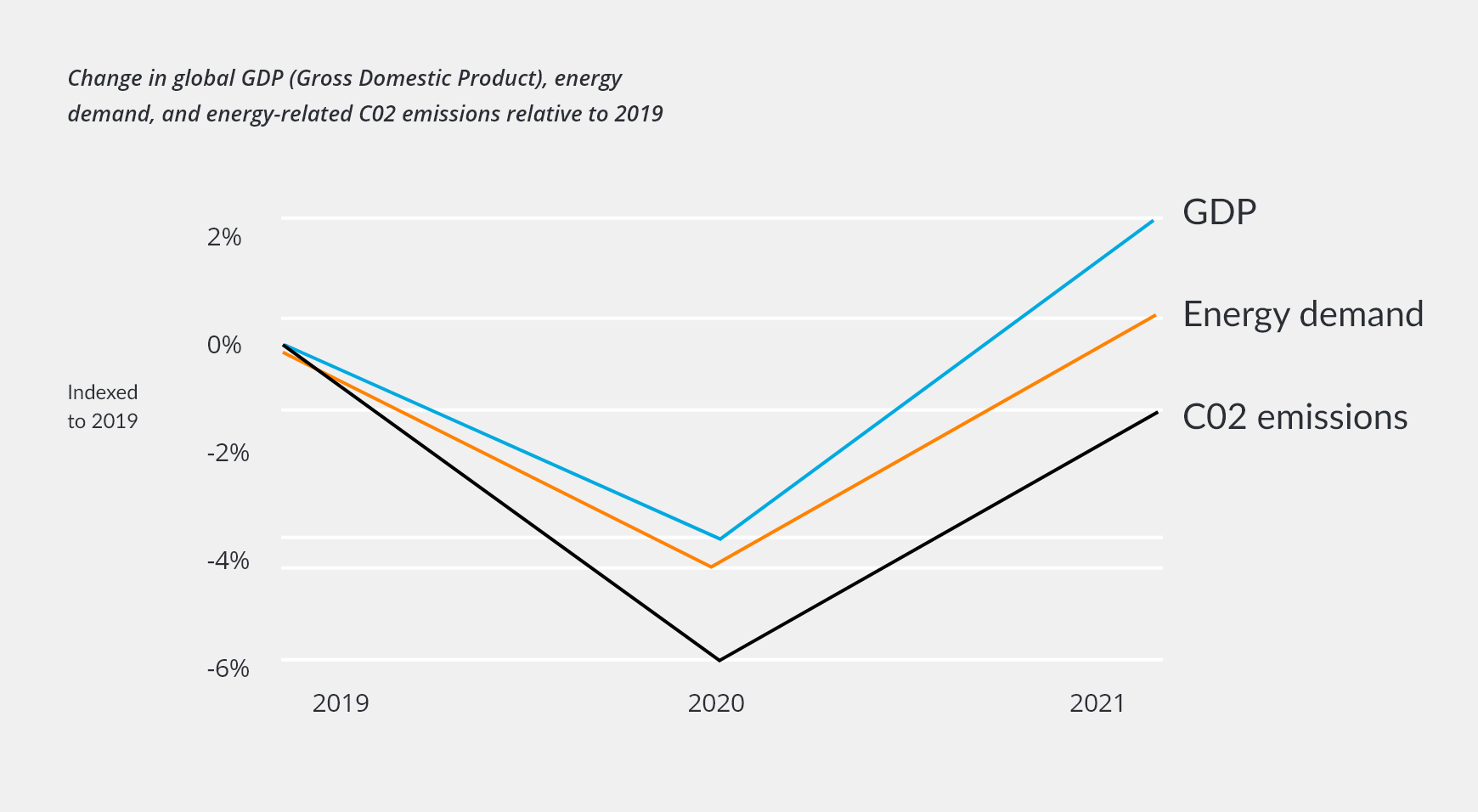
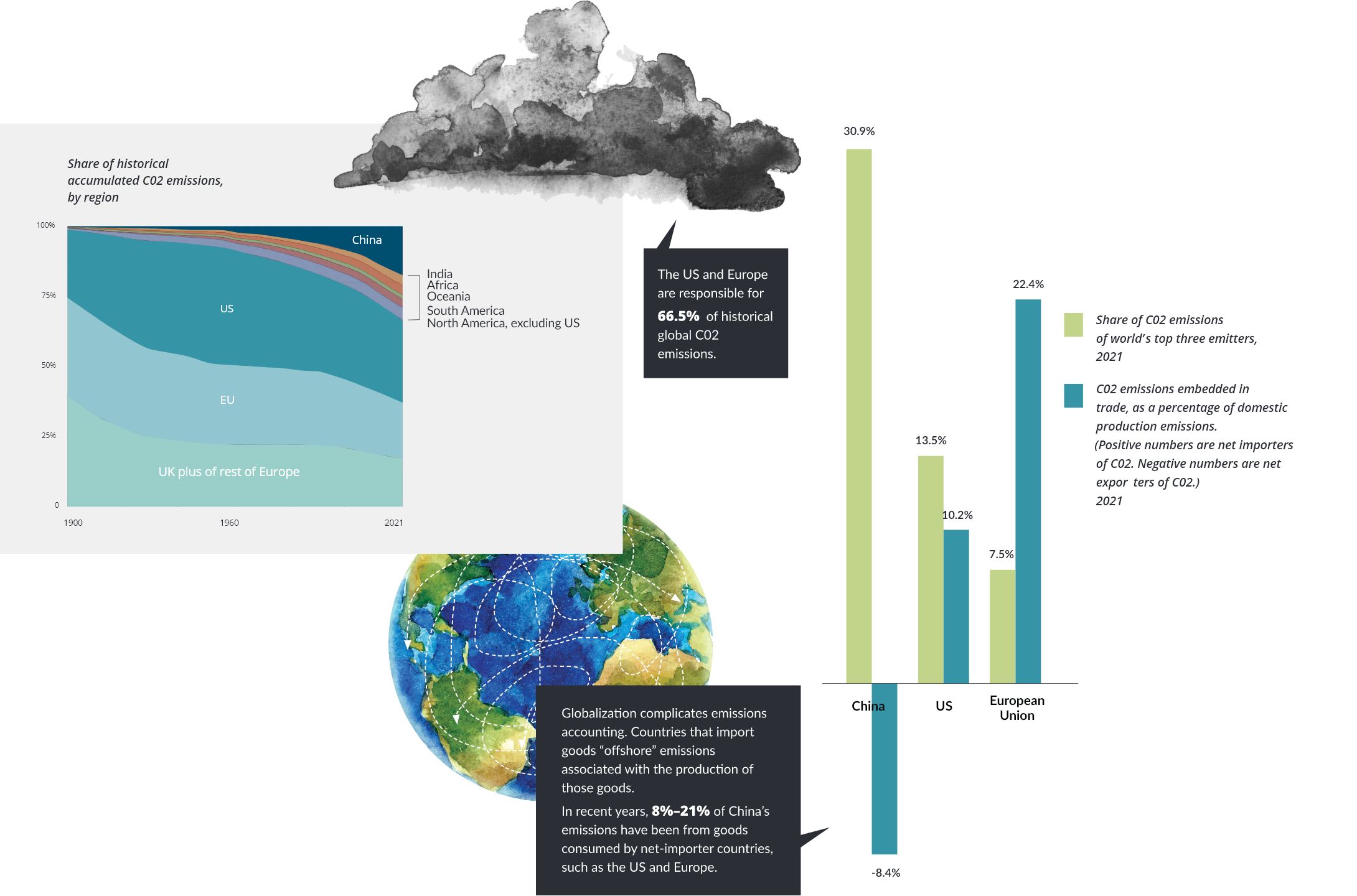
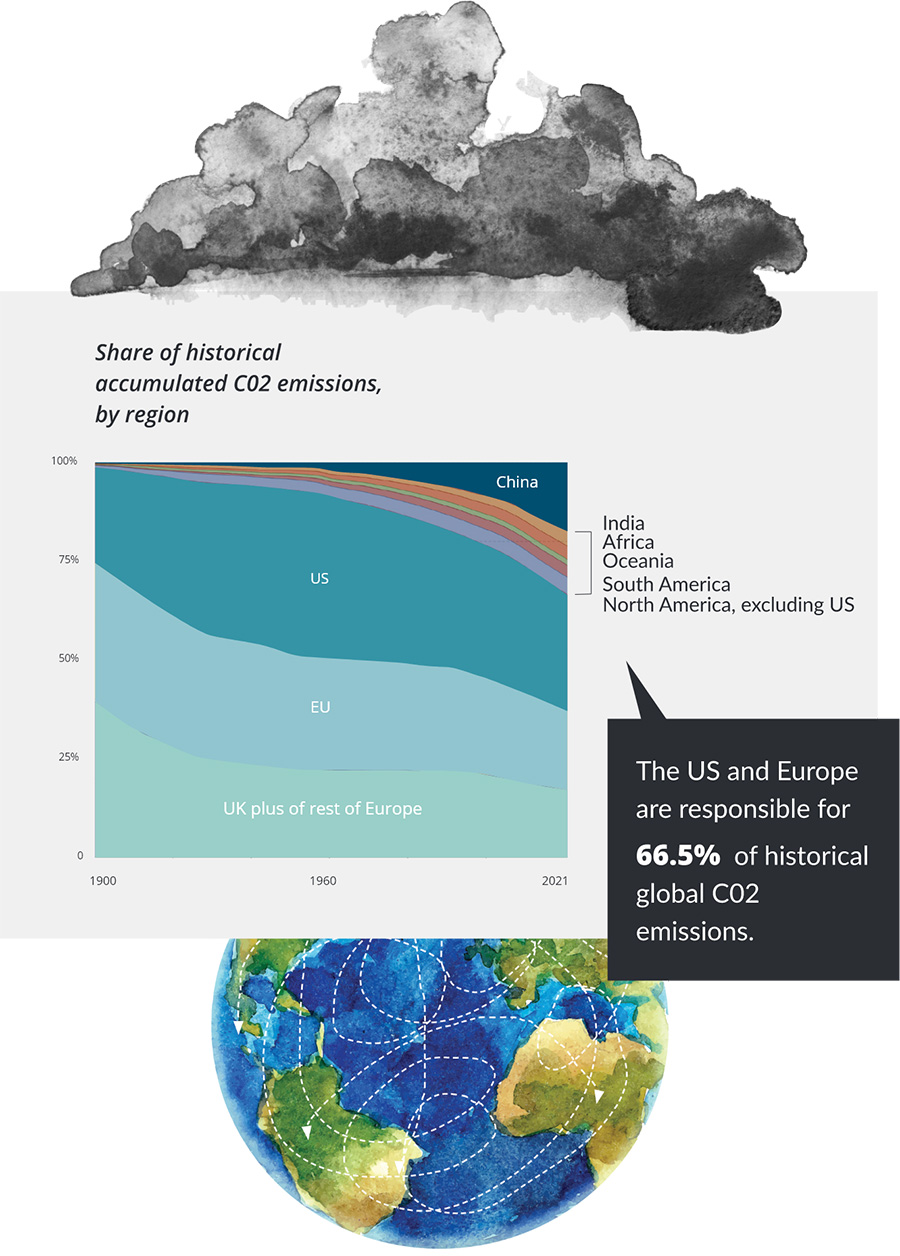
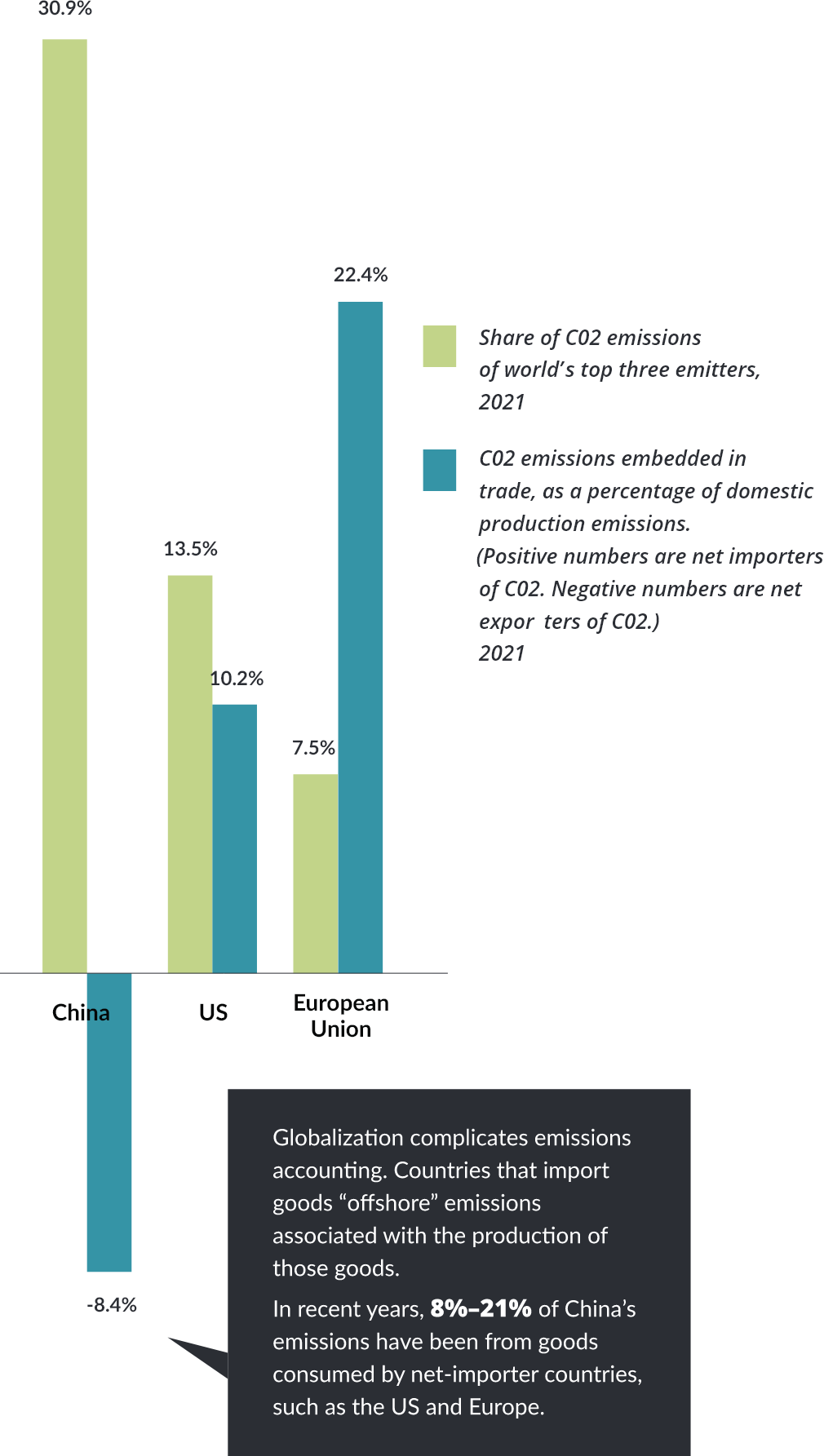
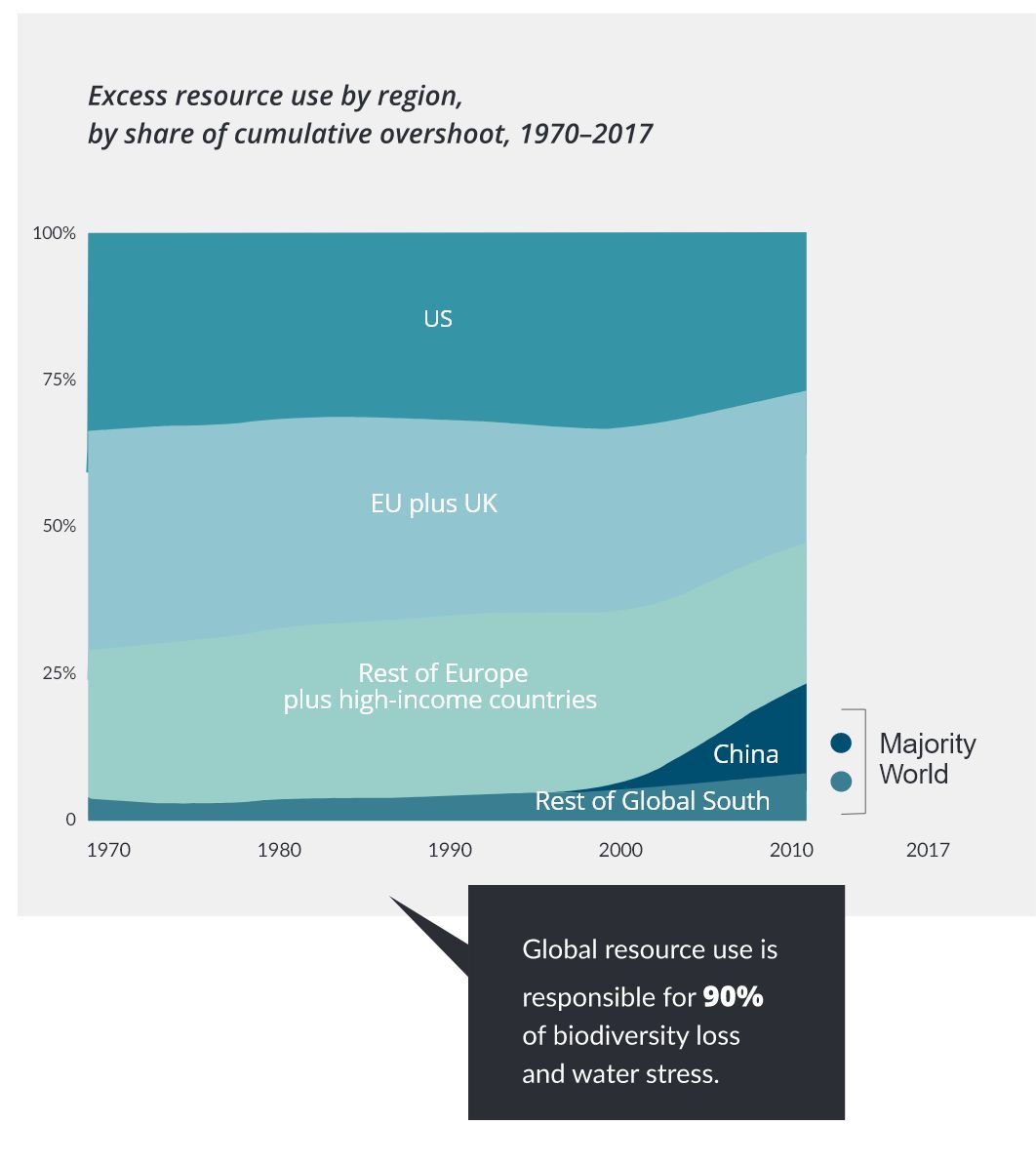
WE CAN CHANGE
THE SYSTEM
Adopt legislation that restores ecosystems and respects future generations.
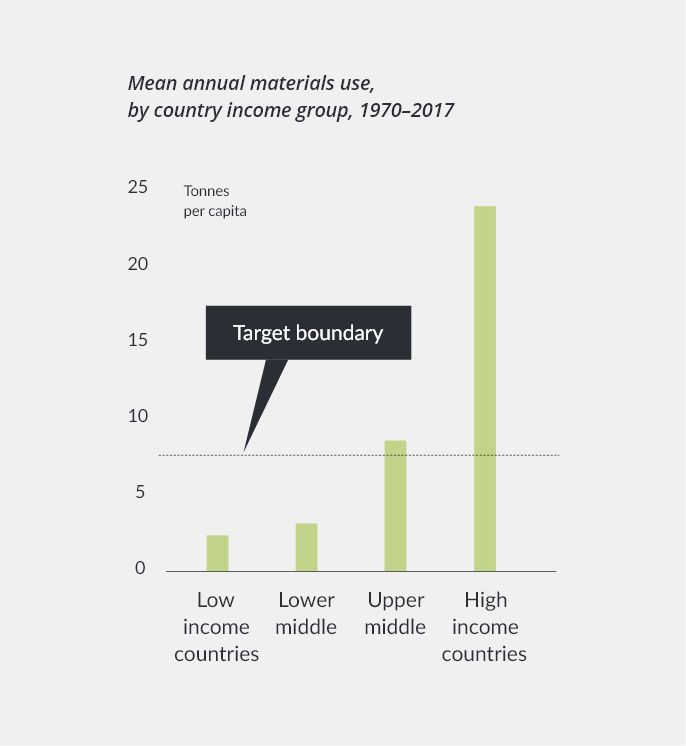
Countries measure success by
how much they produce and consume.
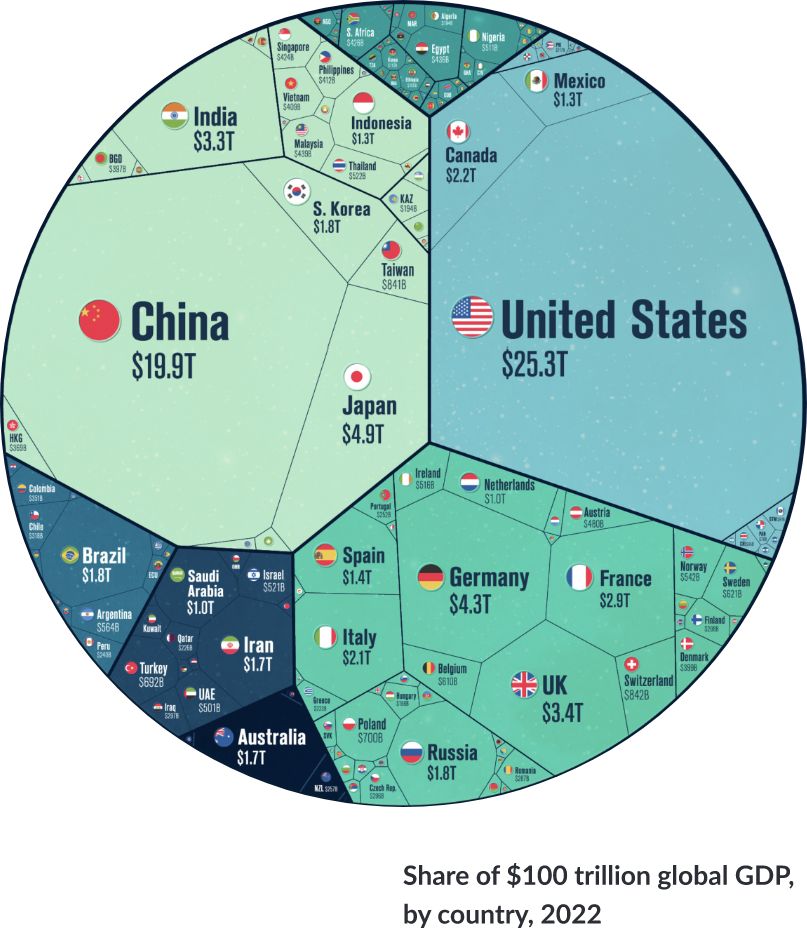
WE CAN CHANGE
THE SYSTEM
Evaluate economic success by its contribution to human and ecological wellbeing.
Adopt wellbeing frameworks as several WEGo governments have.
So governments empower corporations and help them grow.
Or the planet.
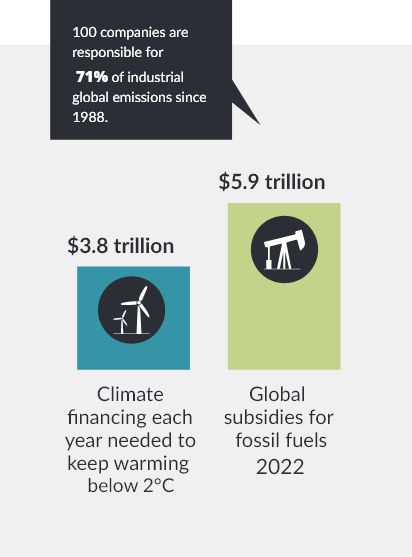
WE CAN CHANGE
THE SYSTEM
Use participatory policy making and governance over natural resources and the commons.
Binding social and environmental Code of Conduct for Multi-national Corporations and global competition.
Corporate and Financial Transfer Taxes.
They design economies that reward overproduction and planned obsolescence.
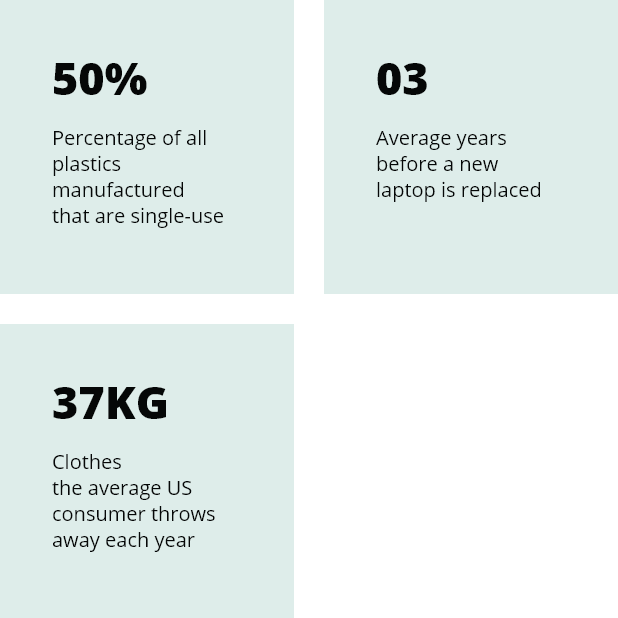
WE CAN CHANGE
THE SYSTEM
Redesign economies as circular systems that eliminate waste and regenerate nature.
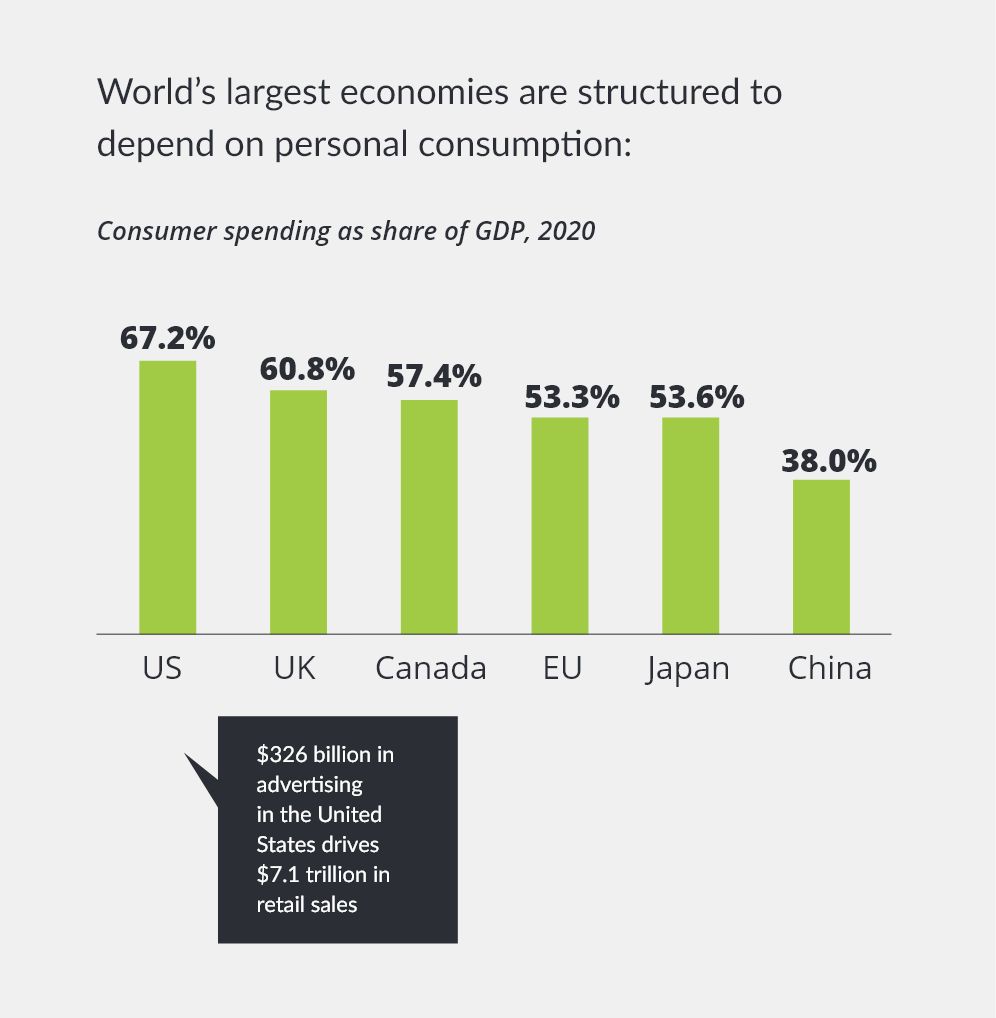
What makes rich countries’ growth and profits possible?
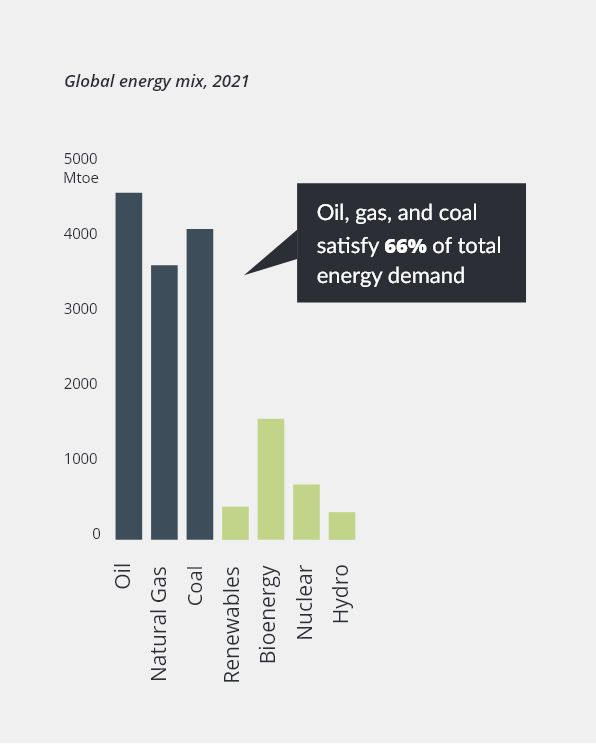
If all countries lived with the US ecological footprint, the resources required would be equivalent to 5.1 Earths.
(2018)
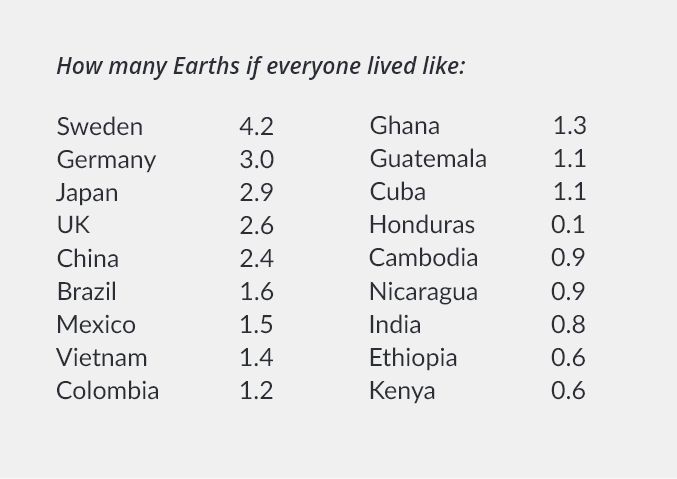
It’s an unjust system for the majority of the world’s people.
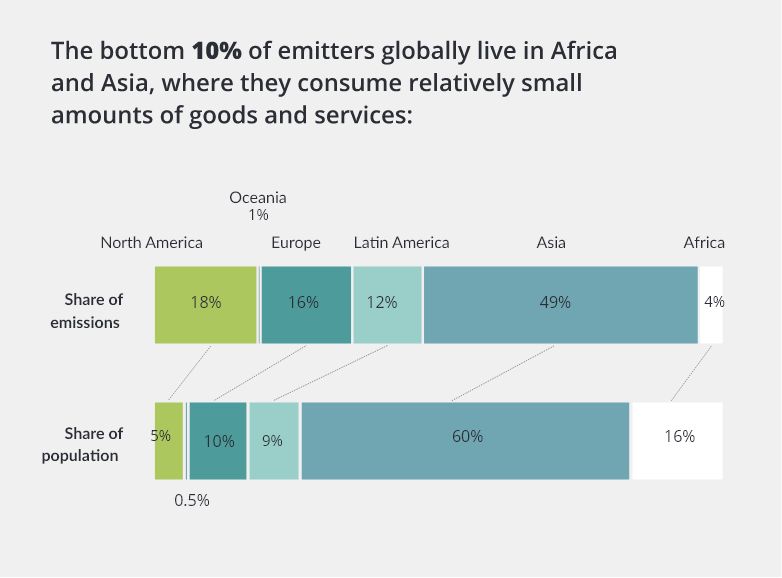
WE CAN CHANGE
THE SYSTEM
Address climate justice through climate finance, loss and damages, and debt cancellation.
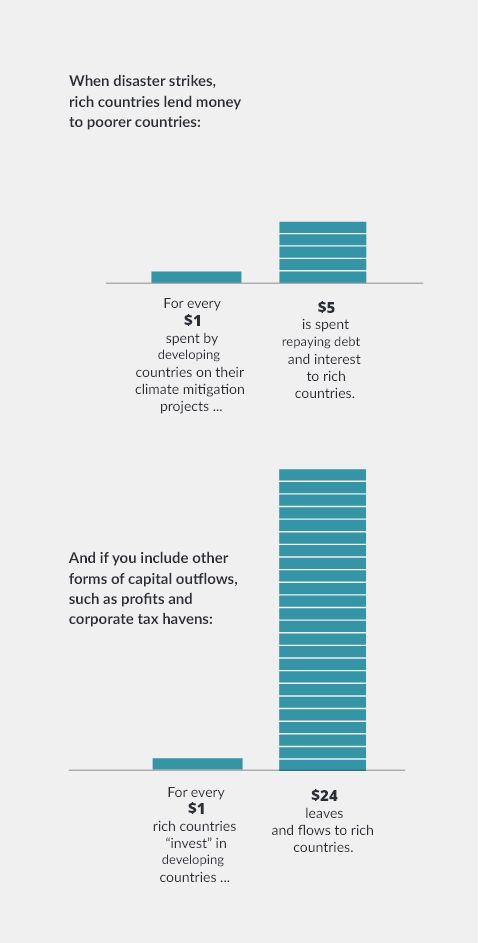
We can change
the system.
The current economic system was designed by people.
That means it can also be changed by people.
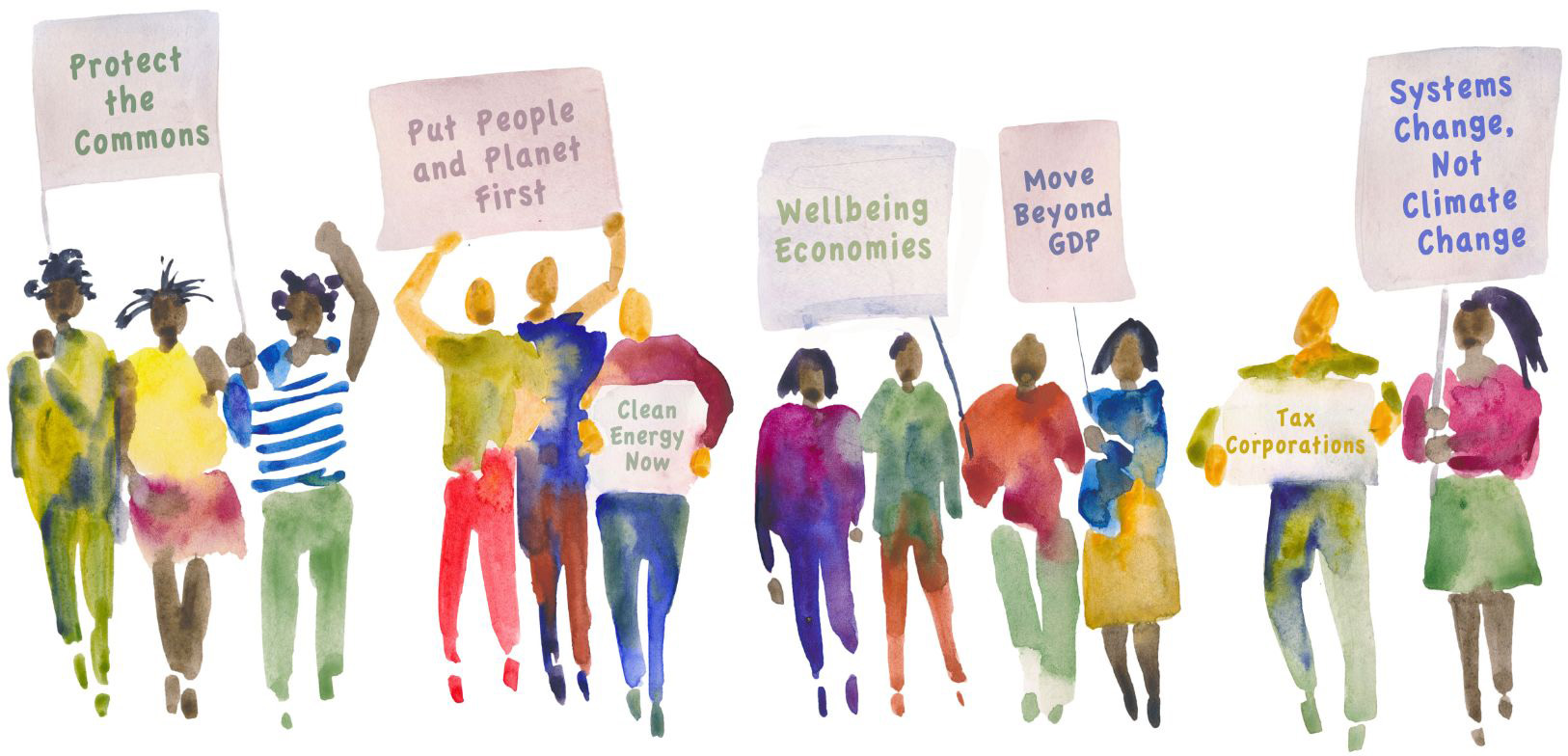
Produced in partnership:
Data sources:
2022 Global Carbon Budget report by the Global Carbon Project:
https://www.ipcc.ch/2022/04/04/ipcc-ar6-wgiii-pressrelease/
IEA: Global Energy Review 2021: https://www.iea.org/reports/global-energy-review-2021
https://ourworldindata.org/grapher/annual-share-of-co2-emissions
https://ourworldindata.org/contributed-most-global-co2
https://ourworldindata.org/grapher/share-co2-embedded-in-trade?tab=chart&country=CHN~OWID_EU27~USA
Data from Global Carbon Budget (2022)
https://earth.org/high-income-countries-are-overshooting-planetary-boundaries-causing-global-ecological-damage/
https://www.thelancet.com/journals/lanplh/article/PIIS2542-5196(22)00044-4/fulltext
GDP data from the IMF represents the most recent nominal projections, as of April 2022:
https://www.visualcapitalist.com/100-trillion-global-economy/
Ecoside Law Report 2023:
https://endecocide.se/wp-content/uploads/2023/01/EL-for-an-Economy-within-Planetary-Boundaires.pdf
The Carbon Majors Database CDP Carbon Majors Report 2017:
https://cdn.cdp.net/cdp-production/cms/reports/documents/000/002/327/original/Carbon-Majors-Report-2017.pdf?1501833772
German Federal Environmental Agency
https://ellenmacarthurfoundation.org/introduction-to-circular-design/we-need-to-radically-rethink-how-we-design
https://earth.org/statistics-about-fast-fashion-waste/
https://www.hp.com/us-en/shop/tech-takes/longest-lasting-hp-laptop
The Advertising Coalition EIA Final Report, November 2021:
https://www.ana.net/content/show/id/73497
IEA World Energy Outlook, 2022:
https://www.capp.ca/energy/world-energy-needs/
https://www.overshootday.org/how-many-earths-or-countries-do-we-need/
https://www.iea.org/commentaries/the-world-s-top-1-of-emitters-produce-over-1000-times-more-co2-than-the-bottom-1
https://wid.world/news-article/climate-change-the-global-inequality-of-carbon-emissions/
https://www.ft.com/content/f4b04f39-8b9d-463d-8e95-ebb0d1514e21
https://jubileedebt.org.uk/wp-content/uploads/2021/10/Lower-income-countries-spending-on-adaptation_10.21.pdf
Global Financial Integrity (GFI) and the Centre for Applied Research at the Norwegian School of Economics:
https://www.theguardian.com/global-development-professionals-network/2017/jan/14/aid-in-reverse-how-poor-countries-develop-rich-countries

